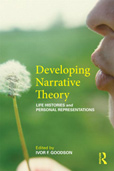Key Idea: Narrative Capital
Narrative capital is a concept which seeks to complement Pierre Bourdieu’s early characterisation of symbolic capital, social capital and cultural capital. In the new ‘age of narrative’ it is argued that a specific new form of capital – narrative capital – has grown in importance.
Narrative capital can be seen at work in many fields. In politics the deployment of narrative capital is a major factor in political action Barrack Obama, a man trained in narrative invention and construction who was able to tell persuasive stories that helped him command huge political support. As a result slogans such as ‘yes we can’ though palpably hard to implement, were widely believed.
On the other side of the coin, David Cameron provides a counter case. The cultural and symbolic capital of schooling at Eton and university education at Oxford would once have provided an authoritative base for political persuasion in previous historical periods. In the age of narrative and of narrative politics this is no longer the case and in some ways works against his desire for a powerful narrative. This narrative capital is poor, as seen in his failure to persuade the British people that ‘we are all in this together’. This cultural and symbolic capital may even work against his narrative aspirations. By common consent he has failed to develop a persuasive narrative to carry forward this political vision. His worst attempt ‘The Big Society’ has failed to garner much support and in many quarters this narrative attempt has been meet with derision.
Narrative capital will be an important element of social reproduction in future decades and may well sit alongside, or even potentially replace, symbolic and cultural capital as guarantors of social standing.
In the research studies conducted in the past decade patternings of narrative character have emerged. Far from there being a monolithic and singular form of narrative or an infinite range of unique and idiosyncratic narratives. There are in fact discernible clusters of narrative character. These can be grouped into four main types:
- Focussed elaborators
- Scripted describers
- Armchair elaborators
- Multiple describers
Developing Narrative Theory: life histories and personal representation
Read about Narrative Capital in the chapter: Narrativity, Learning and Flexibility: towards the narrative future:This book looks at the contemporary need to study life narratives;...
